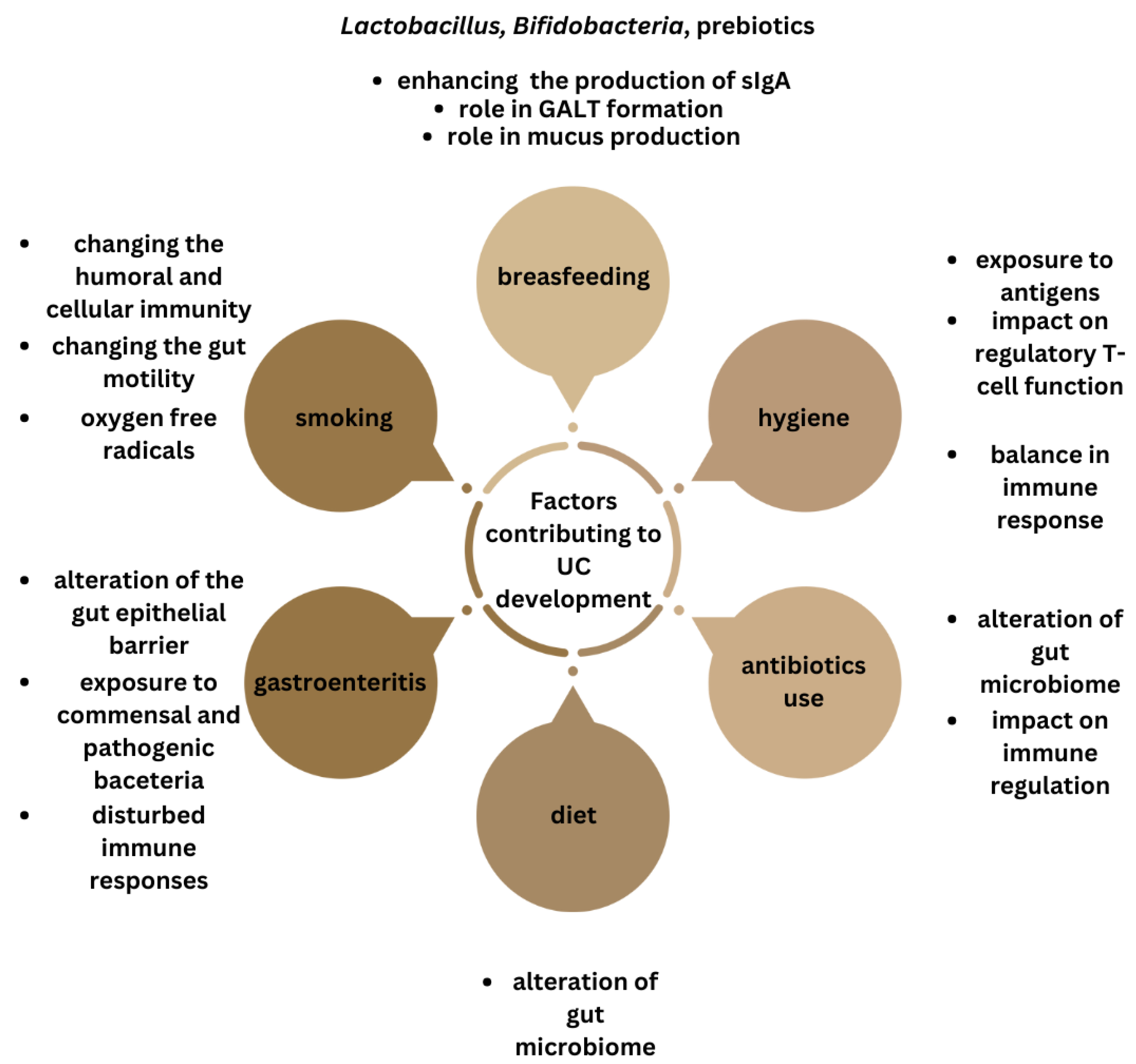Copied
The Role of the Microbiome in the Pathogenesis and Treatment of Ulcerative Colitis—A Literature Review

Abstract
Ulcerative colitis (UC) is a chronic inflammatory bowel disease affecting the colon and rectum. UC’s pathogenesis involves colonic epithelial cell abnormalities and mucosal barrier dysfunction, leading to recurrent mucosal inflammation. The purpose of the article is to show the complex interplay between ulcerative colitis and the microbiome. The literature search was conducted using the PubMed database. After a screening process of studies published before October 2023, a total of 136 articles were selected. It has been discovered that there is a fundamental correlation of a robust intestinal microbiota and the preservation of gastrointestinal health. Dysbiosis poses a grave risk to the host organism. It renders the host susceptible to infections and has been linked to the pathogenesis of chronic diseases, with particular relevance to conditions such as ulcerative colitis. Current therapeutic strategies for UC involve medications such as aminosalicylic acids, glucocorticoids, and immunosuppressive agents, although recent breakthroughs in monoclonal antibody therapies have significantly improved UC treatment. Furthermore, modulating the gut microbiome with specific compounds and probiotics holds potential for inflammation reduction, while fecal microbiota transplantation shows promise for alleviating UC symptoms. This review provides an overview of the gut microbiome’s role in UC pathogenesis and treatment, emphasizing areas for further research.
Details
Title
The Role of the Microbiome in the Pathogenesis and Treatment of Ulcerative Colitis—A Literature Review
Type of Article
Diets studied
No items found.
Date
November 25, 2023
Author(s)
Świrkosz G, Szczygieł A, Logoń K, Wrześniewska M, Gomułka K.
Publication
Biomedicines
Citation
Świrkosz G, Szczygieł A, Logoń K, Wrześniewska M, Gomułka K. The Role of the Microbiome in the Pathogenesis and Treatment of Ulcerative Colitis—A Literature Review. Biomedicines. 2023; 11(12):3144. https://doi.org/10.3390/biomedicines11123144
ISSN Number
Volume
Pages
"The purpose of the article is to show the complex interplay between ulcerative colitis and the microbiome."
"Observational studies have associated factors like breastfeeding, hygiene, antibiotic use, diet, smoking, and infectious gastroenteritis with the development of IBD. There is evidence indicating that these factors can affect the gut microbiota and alter immune responses in individuals with a genetic predisposition to ulcerative colitis, but future research is needed to provide a clearer understanding."
"The modulation of the gut microbiome through dietary components, probiotics, and FMT shows considerable potential for enhancing UC treatment strategies, particularly in cases where first-line therapies prove ineffective. Nonetheless, there is an ongoing need for the identification of biomarkers to predict treatment response and the optimization of treatment strategies, both of which remain critical areas of research in UC management."




Support our Mission
Your donation will help us to enhance the well-being and health outcomes of patients with IBD.
Donate Donate
Donate